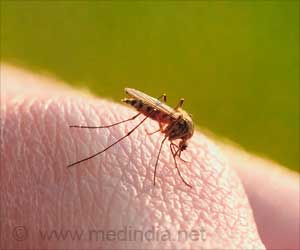Challenging the common myth that climate change would increase spread of dengue mosquito in Australia, scientists have now claimed that it's the human behaviour that is the real driver behind the problem.
Dr. Nigel Beebe and colleagues from the University of Queensland, CSIRO Entomology, the Australian Army Malaria Institute, and the Communicable Diseases Branch of Queensland Health, Brisbane, claimed that "drought-proofing" the country's urban regions by installing large domestic water tanks could enable the dengue mosquito, Aedes aegypti, to regain its foothold across the country, and expand its range of possible infections.Their analysis combined current and forecasted climate change conditions with historical epidemics to reveal the risk of dengue infections in all capital cities around Australia by 2050.
The researchers developed and critically assessed their models to project the distribution of the mosquito in 2030 and 2050.
While dengue fever is currently limited to Queensland only, the implementation of new water tanks, combined with already warm summer temperatures, could enable the mosquito to re-emerge and expand its reach.
"Dengue risks will not be driven directly by warmer temperatures or changes in rainfall patterns. Our summers already provide ideal conditions for dengue transmission around the country, but the introduction of government-subsidized water storage devices now adds the ideal breeding ground for the dengue mosquito to re-emerge," said Beebe.
He added: "While research is properly focused on the impact of anthropogenic climate change, this study highlights the need to look also at our responses to those changes and the outcomes they generate."
Advertisement
Source-ANI
SRM











